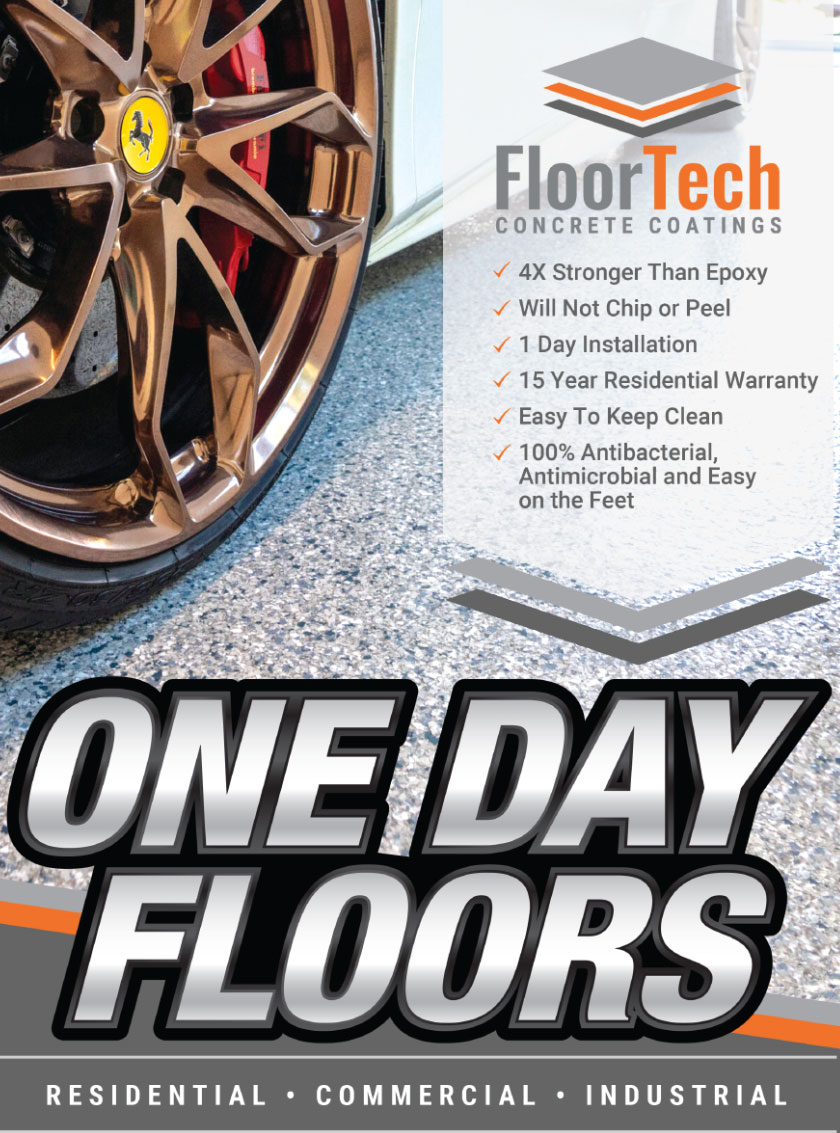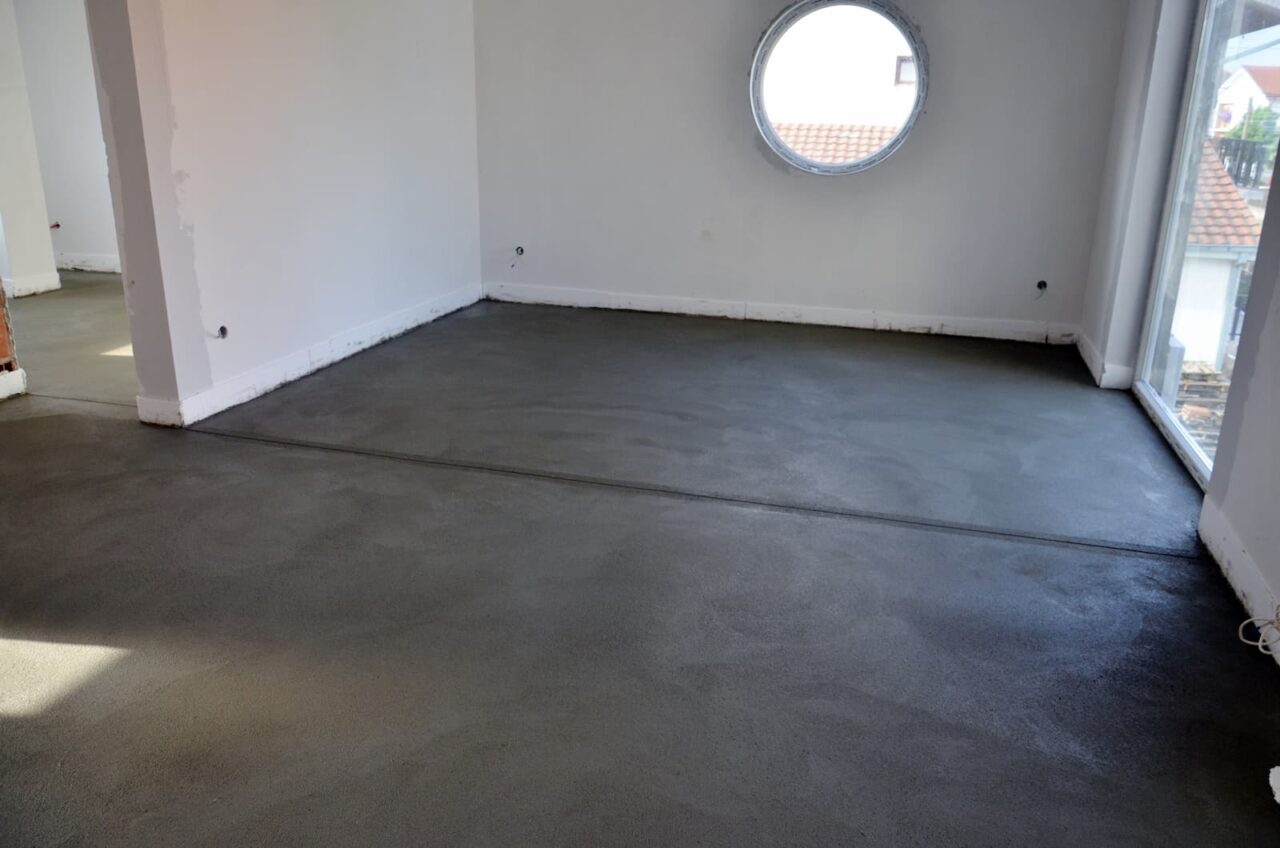How Long Should Fresh Concrete Cure Before Applying a Coating?
When you pour a fresh concrete floor, whether in your garage, basement, or outdoor space, you might be eager to get it coated as soon as possible. After all, a concrete coating not only protects your floor but also adds that clean, polished look we all love. But here’s the thing—patience is key when it comes to coating fresh concrete.
At FloorTech Concrete Coatings, we often get asked: “How long should I wait before applying a coating to my new concrete?” Today, we’re here to give you the lowdown on why curing time matters and the best coatings to protect your investment.
How Long Should Fresh Concrete Cure?
As a general rule, you should let fresh concrete cure for at least 30 days before applying a coating. Why the wait? Well, concrete may look solid on the outside, but underneath, it’s still going through chemical changes. Fresh concrete is full of moisture that needs time to evaporate as the concrete hardens and strengthens. Applying a coating too soon can trap that moisture, which can lead to all kinds of problems down the road—like peeling, bubbling, and even cracking of the coating.
That’s why we recommend using a moisture meter to test whether your concrete is truly ready. It’s one thing to rely on the calendar, but a moisture meter gives you the hard facts on what’s going on below the surface. Testing is especially important if you’re in a hurry or if the climate where you live (like Virginia) is more humid, which can slow down the curing process.
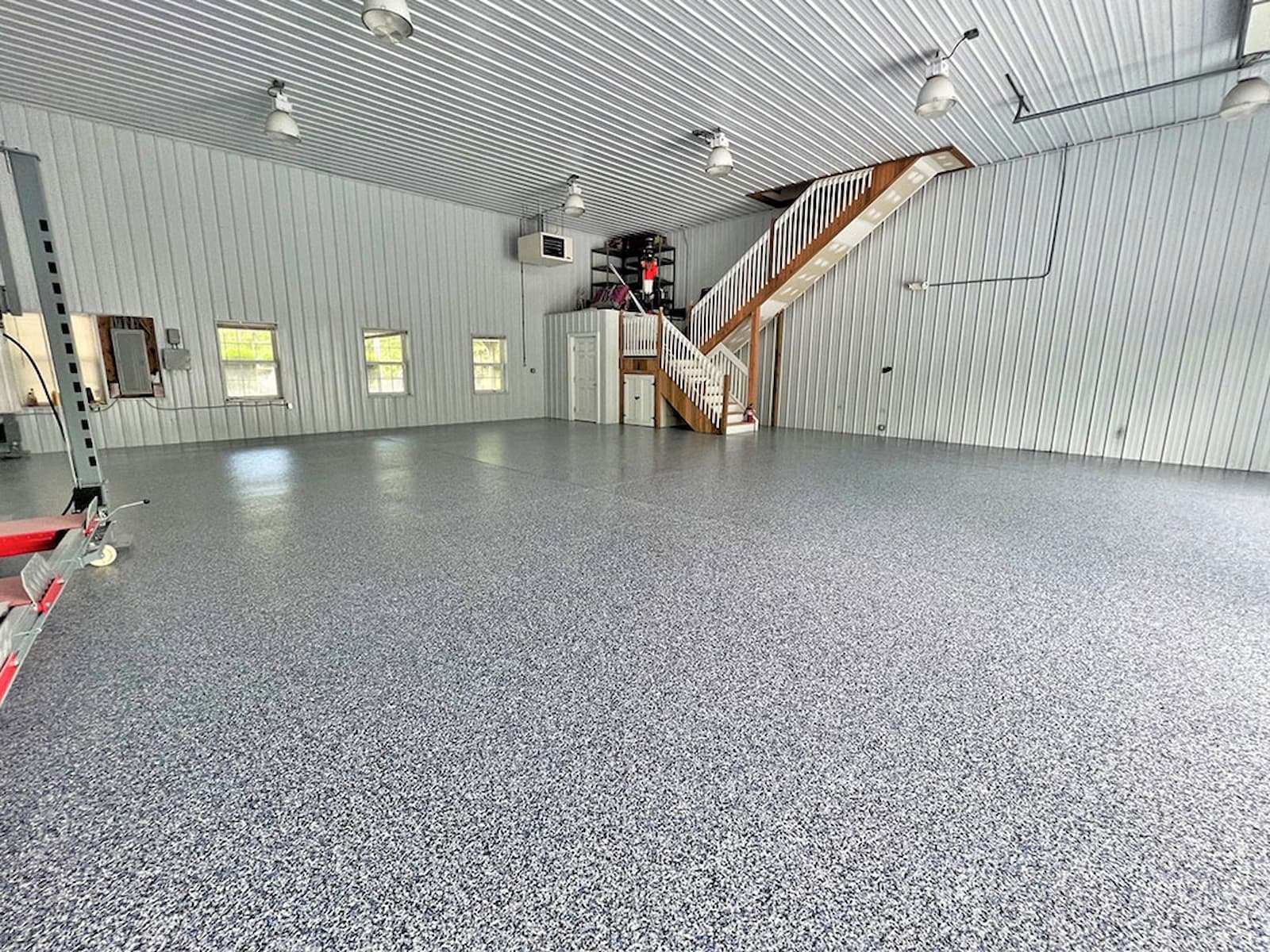
Why Concrete Moisture Matters for Coatings
So, what’s the big deal about moisture, anyway? A concrete floor that hasn’t fully dried out will hold onto moisture, and that’s a problem when you apply a coating. When the moisture tries to escape, it pushes against the coating, which weakens the bond and can cause the coating to fail prematurely.
Whether you’re considering an epoxy or polyurea coating (we’ll talk more about those in a bit), proper moisture testing is crucial to ensure your floor coating lasts for years to come.
Popular Coating Options for Concrete Floors
Now that you’ve waited patiently for your concrete to cure, let’s talk coatings. There are two popular options: epoxy and polyurea. Each has its strengths, so which one is right for you? Let’s break it down.
Epoxy Coatings
Epoxy is a tried-and-true option, often found in home improvement stores and seen as a DIY-friendly choice. It’s a polymer, much like the material in rubber bands or certain shoe soles, which gives it some toughness and elasticity. Epoxy typically forms a surface-level bond, sitting on top of the concrete rather than sinking in.
Think of epoxy as a protective layer, much like the clear coat on a wooden table—it looks nice, adds shine, and offers some protection. However, epoxy isn’t without its downsides. Over time, especially with UV exposure, it can start to yellow or peel. Plus, it’s prone to chipping, especially in high-traffic areas or places where your concrete expands and contracts with temperature changes.
Polyurea Coatings
Now, polyurea is a bit of a superstar when it comes to concrete coatings. It’s a unique elastomer (like what makes waterproof raincoats so effective), and it forms a much deeper bond with the concrete than epoxy. In fact, polyurea bonds so well that, when tested, the concrete often breaks before the polyurea coating does!
Polyurea’s magic lies in its two-part formula that sets quickly and creates an extremely durable, flexible coating. If you live in a place with weather extremes (hello, Virginia!), polyurea can stand up to temperature changes, heavy traffic, and chemical exposure far better than epoxy. It’s also resistant to UV damage, so it won’t yellow or fade if exposed to sunlight.
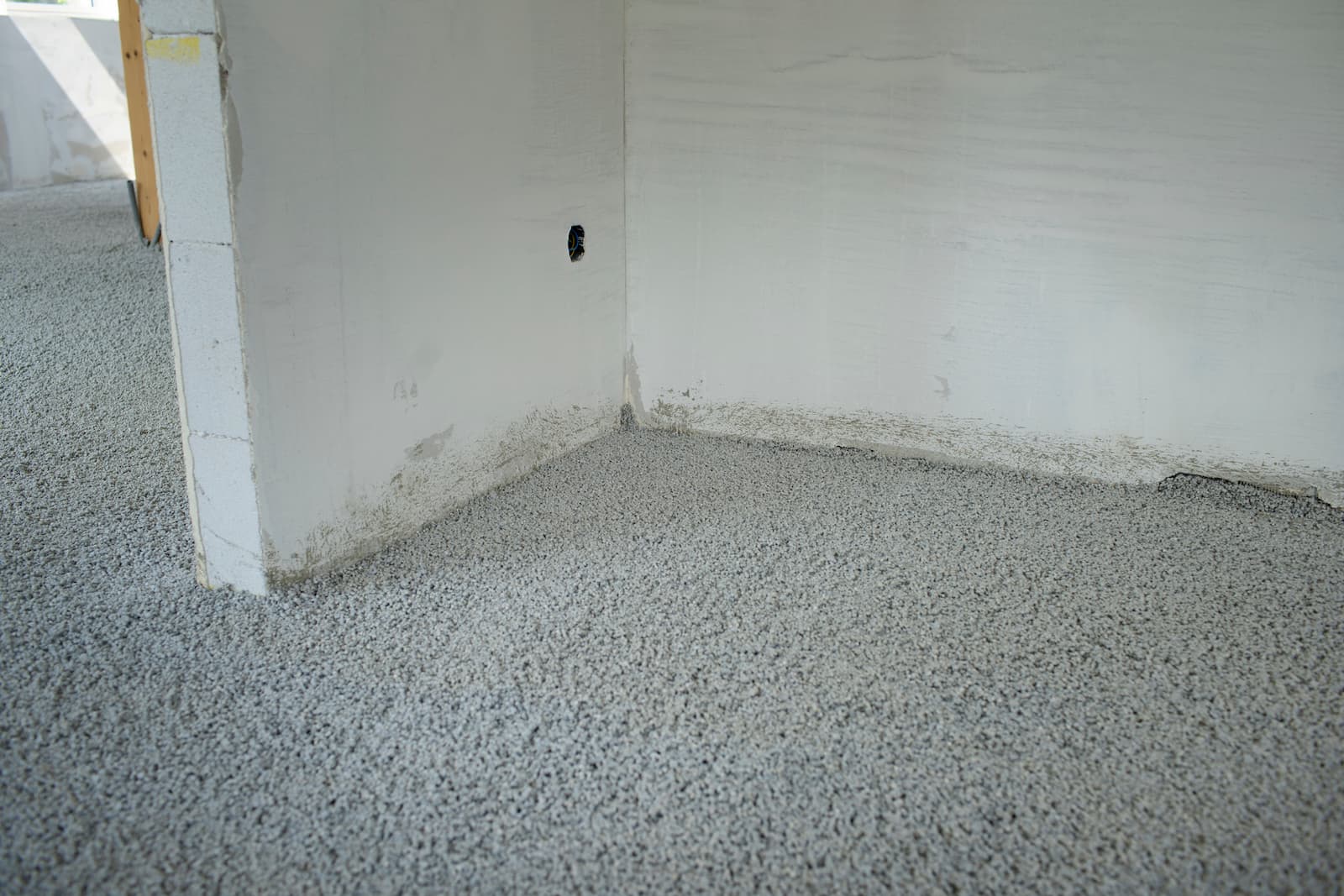
Epoxy vs. Polyurea: A Comparison
So, how do these two coatings stack up when it comes to durability, longevity, and cost?
- Durability and Longevity: Epoxy coatings last about 3-5 years before they start to show wear. Heat from car tires, moisture, and UV rays can wear it down over time. Polyurea, on the other hand, can last 15+ years, offering superior protection even under heavy use.
- Bonding Strength: Polyurea forms a deep chemical bond with the concrete, which means it’s much more resistant to chipping and peeling. Epoxy sits more on the surface, which makes it more susceptible to damage.
- Cost: Epoxy is the more budget-friendly option, with costs typically ranging from $3-7 per square foot. Polyurea, while pricier at $7-12 per square foot, delivers greater value over time due to its durability and longer lifespan.
Specialty Polyurea Options
If you decide to go with polyurea, you should know there are different types suited for various layers of your floor.
- Aromatic Polyurea: This is typically used as a basecoat. It’s durable and resilient but tends to change color when exposed to sunlight.
- Aliphatic Polyurea: This type is perfect for the topcoat, thanks to its UV resistance and shiny finish.
- Polyaspartic Polyurea: Slower setting, which makes it easier to apply as a top layer, though it doesn’t bond as deeply to raw concrete.
At FloorTech, we use Penntek’s Pure Polyurea system, which combines the best of both worlds. With an aromatic polyurea base and an aliphatic polyurea topcoat, it’s tough, beautiful, and built to last.
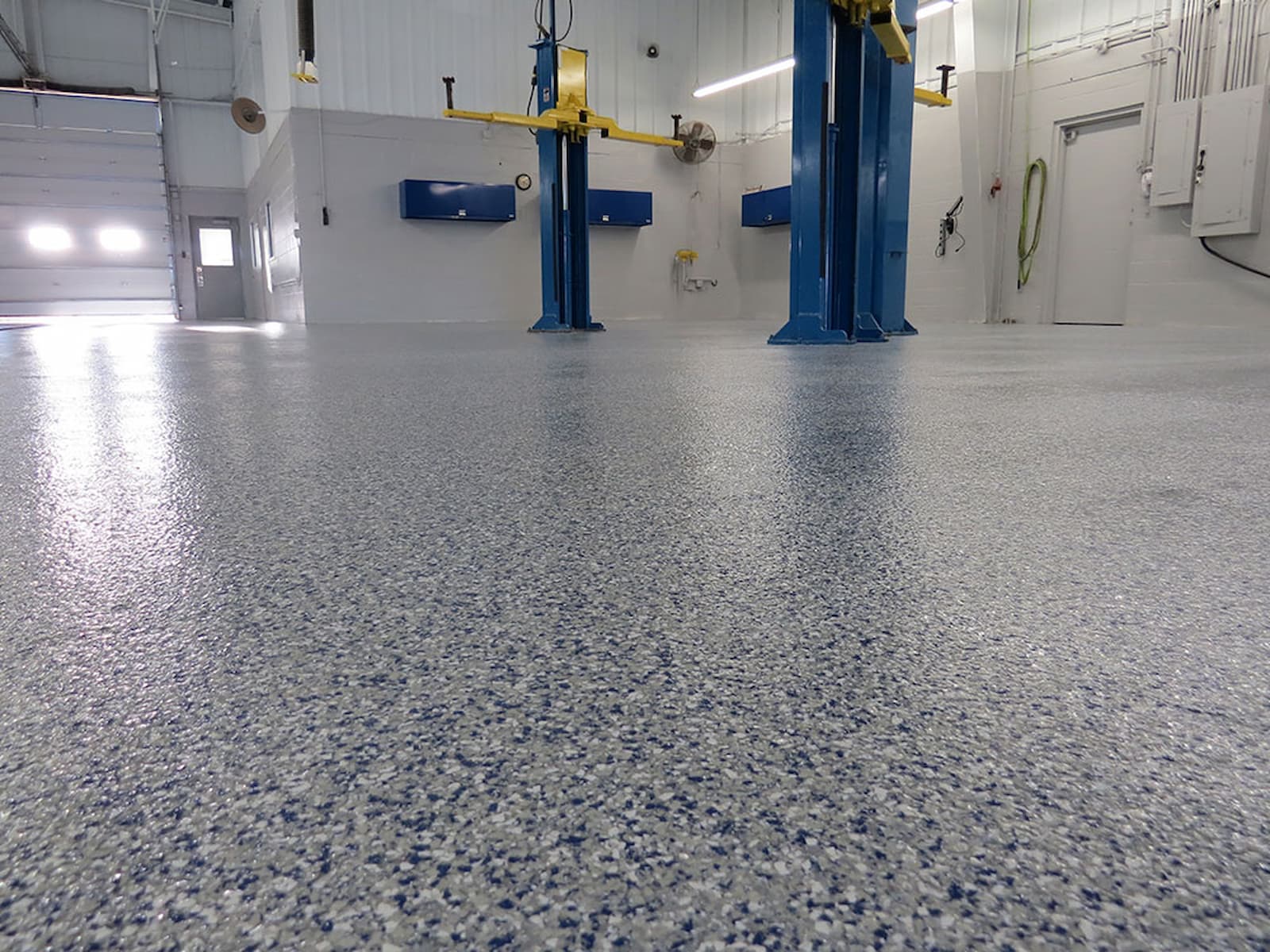
Professional vs. DIY Installation
If you’re considering coating your concrete yourself, epoxy might seem like the easier option. It’s available at most hardware stores, and with the right prep, you can get decent results. However, DIY epoxy projects can be tricky, time-consuming, and the results may not last as long as you’d hope.
Polyurea, on the other hand, is best left to professionals. The process involves filling cracks, grinding the surface, and applying a densifier before even getting to the coating. At FloorTech, we are certified installers of Penntek’s Pure Polyurea, which means you get top-of-the-line materials applied with expertise.
While professional installation comes with a higher price tag, it’s an investment in quality and longevity. With polyurea, you won’t need to worry about re-coating your floor every few years, and you’ll get peace of mind knowing the job was done right.
Beautify Your Concrete Floors for Years to Come!
In short, don’t rush the process. Give your concrete time to cure—at least 30 days—and make sure to test the moisture levels before applying any coating. When it’s time to coat your floor, consider the long-term benefits of polyurea over epoxy. It’s more durable, lasts longer, and offers superior protection, especially in Virginia’s climate.
If you’re looking for expert advice or professional installation, contact us a call at FloorTech Concrete Coatings. We’re here to help you protect and beautify your concrete floors for years to come!

